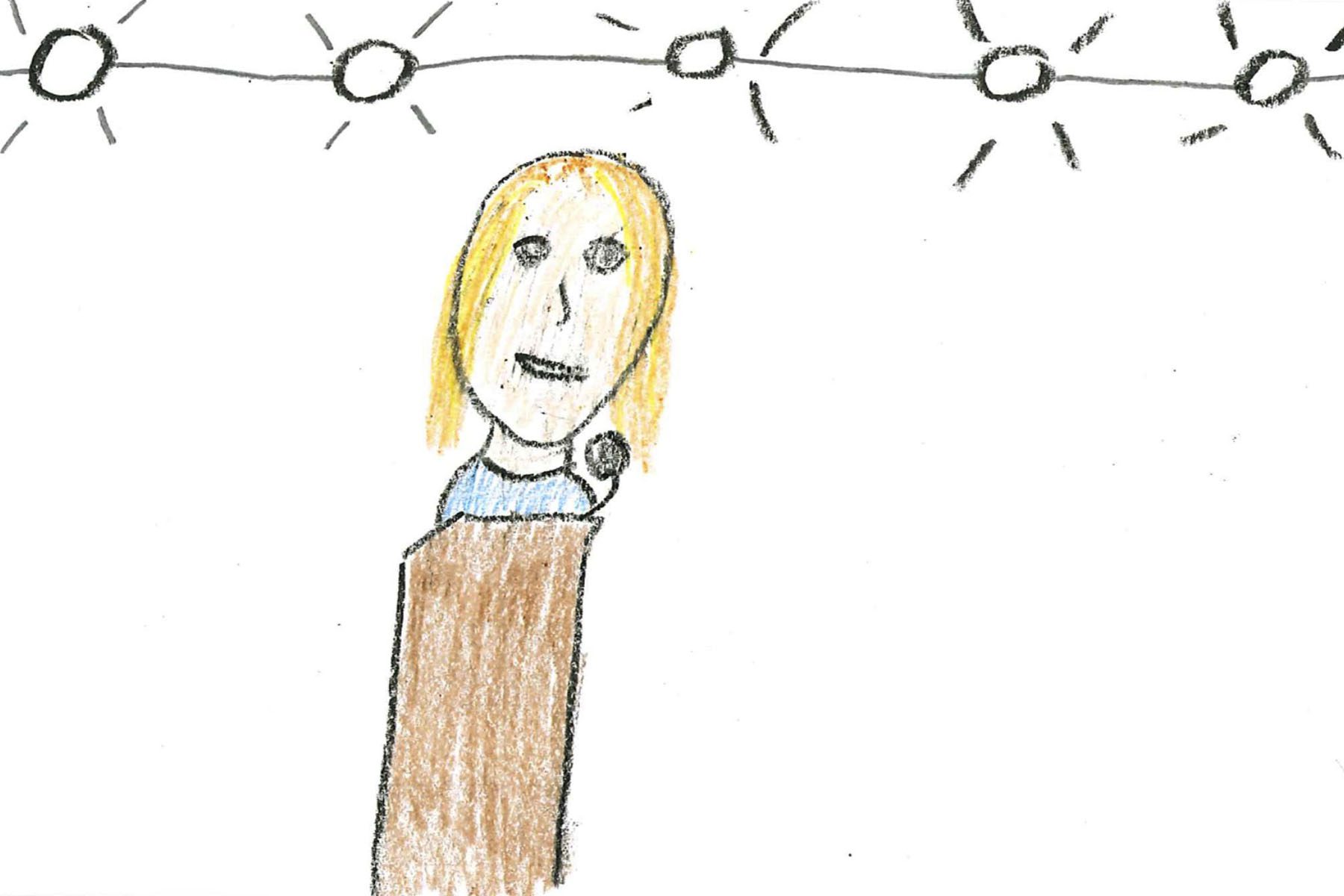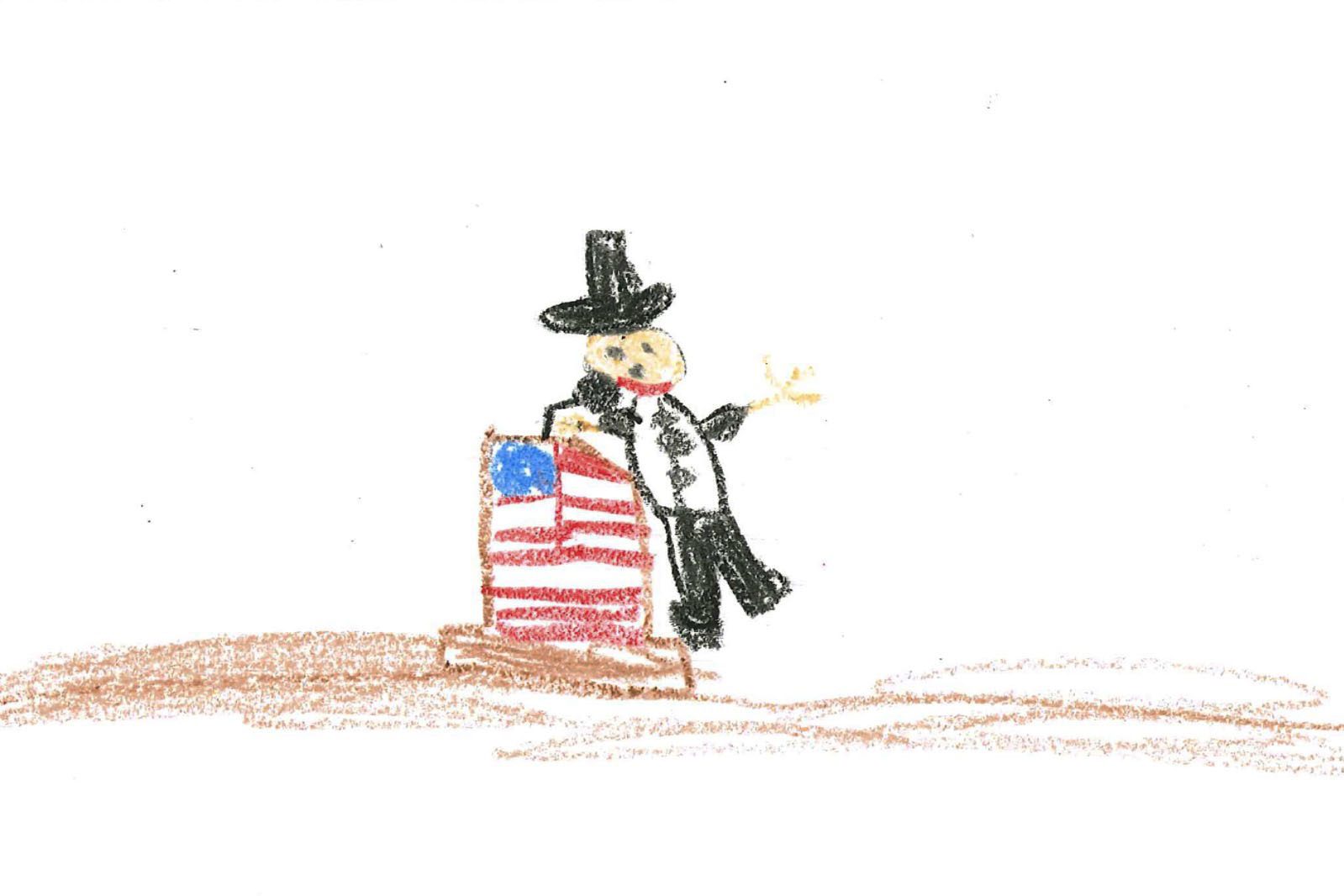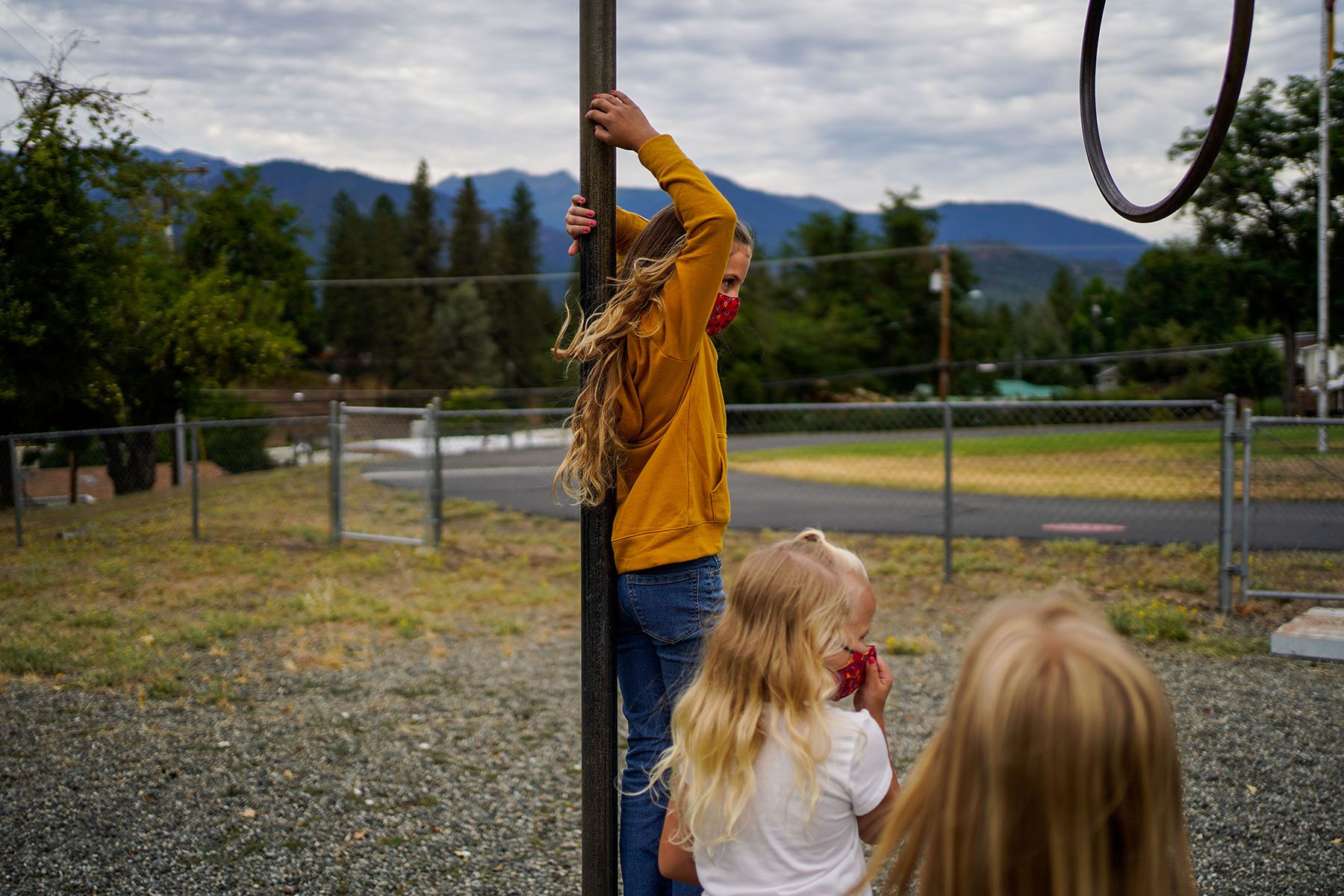New research shows girls are being socialized early in life to believe they don’t belong in politics.
A research article published this month in the scholarly journal American Political Science Review found that young children perceive politics to be a space dominated by men. Girls’ perception of this is enforced as they grow older.
From late 2017 to early 2018, researchers interviewed children around the country to capture their understanding and interest in politics. More than 1,600 1st through 6th graders were handed crayons and paper and asked to draw a political leader at work.
The children were given open-ended prompts to describe what the political leader is doing in their drawings, what words describe them and what such a leader does on a typical day.
The drawings and responses ran the gamut, particularly for the youngest children. But older girls in particular were more likely to draw people with masculine traits. Research assistants sorted responses by noting whether children drew known political leaders, included clothing like skirts or used pronouns in describing the political leaders. They also coded the adjectives children used as masculine traits or feminine traits. (The study states there are limitations to its use of terminology and does not address gender identity or include nonbinary people.)
Women remain underrepresented in elected office, making up just 31 percent percent of statehouses and 26.7 percent of Congress, but researchers argue it doesn’t have to be this way. Mirya R. Holman of Tulane University, one of the article’s authors, spoke to The 19th about the most surprising aspects of the research and the ways in which early intervention in how society teaches children about politics could make a difference.
This interview has been edited for length and clarity.
Barbara Rodriguez: Why did you set out to explore this topic? Is it underreported?
Mirya R. Holman: This big research team that’s involved are all people that, before starting the study, mostly studied adults. Everybody studies gender and politics, and a lot of us study questions around political ambition: Why are some people interested in running for political office? Why are other people less interested?
[The team] kept having these conversations over and over again — there’s a lot of interventions that we’re seeing that are often very successful in trying to get more women to run for the state legislature level or local office. But we are not seeing dramatic changes in the actual overall level of women’s representation in the United States. By all accounts, we’re looking at maybe 2100 before we’re anywhere close to gender parity if we’re the most optimistic about levels of women’s representation.
We kept thinking maybe this actually starts much earlier than trying to recruit people that are in their 30s. So we set out to try to understand whether or not these gender gaps, in particular, in interest in politics and interest in holding political office, exist already among younger children, and we find that they do.
The research tests this new theoretical framework called “gendered political socialization.” What is that, and why is it important in understanding the effects of girls’ and boys’ interest in politics?
We theorize that as children learn about the world, they go through two processes at the same time. The first is that boys and girls learn about gender in the world. And this is very well established in the literature that boys and girls, as young children and then through primary school, observe how men and women act in the world, and through those observations learn what kinds of roles men and women are supposed to occupy in the world. So if you only ever see women as elementary school teachers, for example, and you’re a young child, you start to think, “Well, this is a role that women occupy in the world. And if I, a girl, am interested in having a role that is consistent with my gender then being an elementary school teacher is something that I might be interested in doing because it’s consistent with the messaging that I’m getting about who belongs in the world.” And we know from gender role theory that there is both internal and external pressures on kids to conform with these gender roles.
At the same time that this is happening — kids are learning about gender — they’re also learning about politics. So one of the things that comes out from our studies is that kids are paying a lot of attention to what’s going on in the political world as early as 6 years old. They know who political leaders are. They know who the president is. They’re learning about who holds positions in the politics world, and through the social studies curriculum … they learn that, “Oh, we’ve only ever had men as presidents,” for example.

In doing so, we argue that this process of gendered political socialization occurs, where they learn that politics is a space that’s primarily occupied by men. And in learning that, that reinforces to them that politics is this masculine space and girls start to believe, “Well that’s not really a place where I belong.” And boys start to believe, “Oh, this is the place where I belong.” And so we start to see these gaps emerge between boys and girls.
The research article concluded that children perceive politics to be a male-dominated space, and with age, girls increasingly see political leadership as dominated by male leaders. Was that surprising to you?
It confirmed my already existing expectations about what the world is like. One of the things that was surprising to me is sort of how early on this begins. We as a group had sort of discussed, “Well, maybe one of the things that happens is this starts to occur when we start to see student council elections. Maybe it’s middle school or maybe high school when kids start to think of themselves as political actors, maybe that’s when this begins.” But what we see is that this begins in 3rd and 4th grade among kids. Under the age of 10, girls are already sort of opting out of thinking about themselves as political actors.
Separately, the research indicates that as children grow older, they internalize gendered expectations. You’ve already talked about this a little bit, but can you explain it a little bit more in terms of what ramifications that has?
When we think about these gendered expectations, we might think about this as constraining our sort of daily behavior, right? What do people wear? How do they act? How do they treat other people? But it also constrains what they think about in terms of their potential roles in the future in society.
One of the bodies of scholarship we draw a lot on is from research from science education that’s really been trying to think about how to get girls more excited about STEM [science, technology, engineering and math]. And in that literature, they show over and over again that basically girls can’t conceive of themselves as being a scientist and doing the things that they want to do in their life. One of the sorts of components to this is that girls are socialized to be more interested in communal activities.
These are socialized roles that girls internalize over time. And they can’t necessarily see themselves as occupying those roles doing that work in a position like politics, because politics is seen as masculine. It’s not going to have those communal characteristics.
As part of the research, you and your colleagues asked children to draw pictures of political leaders. For boys, the probability of them at age 6 drawing a male political leader is 75 percent and drops to just 71 percent at age 12. At age 6, the probability of a girl drawing a man as a political leader is 47 percent; by age 12 that probability increases to almost 75 percent. What has happened in-between?
The drawings represented for us one of the more exciting pieces of the research, because the drawings themselves are very interesting and honestly incredibly cute. But they also represent for us a really clear example of this idea of, you can’t be what you can’t see. As girls learn more and more about the political world, and they learn more and more about who occupies the political world and who has occupied the political world, they see themselves less and less in it. So, as children age, boys just go along and they draw mostly pictures of men, no matter what their age. But girls increasingly draw images of men as they learn more about the political system. So as their political knowledge grows, they’re more likely to see politics as a space that’s dominated by men.

What are the consequences of girls losing political interest and ambition at such a young age?
One is, if we’re thinking sort of generally as a society … we’re going to have to think about interventions to get girls interested in politics at a far earlier age than we’ve been aiming so far. Often what we see is, maybe college students, sometimes high school students, but often adult women, we’re trying to convince adult women to be interested in politics or engaged in politics. And our research would suggest we may actually want to start far earlier on in the life cycle to get women interested in politics.
The other piece of it too, though, is thinking about sort of how we talk about politics and how we talk about who’s in politics. A lot of social science curriculum uses this really traditional historio-political context where they sort of go through the major political events in American history and point to who was involved in those. So we have many drawings of Abraham Lincoln in our sample because kids learn about Abraham Lincoln as an important political figure. Of course, Abraham Lincoln is an important political figure, but if kids are only learning about men as important political figures, we’re not going to have an easy way of sort of changing people’s ideas about who belongs in politics.
Was there anything else about the research that you found surprising or that you think would be important for readers to consider?
One of the things that we found that was pleasantly surprising is that kids think about political leaders as engaging in things that academics would consider communal activities: helping other people, caring for people, solving problems, going into the community — these things that are what we would want political leaders to be known for. And so we hope that means that people that are interested in hearing broadly about others in the community could see themselves as potential political leaders and kids that are interested in communal activities and potentially caring for other people could see themselves as growing up and being a political leader that helps change things for the better.
What are the potential solutions here? The research indicates that early intervention is necessary. What should that look like?
We’re trying to figure that out. That’s one of the sort of next steps for us. One of the things that we think is key is thinking about what these social science curricula look like and what kinds of lessons are kids getting in the classroom about who belongs in politics. The other piece of it, though, is thinking about making sure that kids are exposed to a wide range of political role models. We very much have a political system where we talk a lot about what is happening in the White House, and we have for the first time ever a woman as a political leader of the White House. So thinking about the opportunities that Kamala Harris’ position affords us might be something that’s really interesting. The other piece of it is making sure that, we know, for example, fathers are less likely to talk about politics with their daughters as compared to their sons, and girls’ political interests are more likely to be dismissed by their parents and role models, so making sure that parents and role models are thinking about the ways that they can have conversations about politics with their daughters as well as their sons, to make sure that their daughters are getting the full exposure to information about politics.







